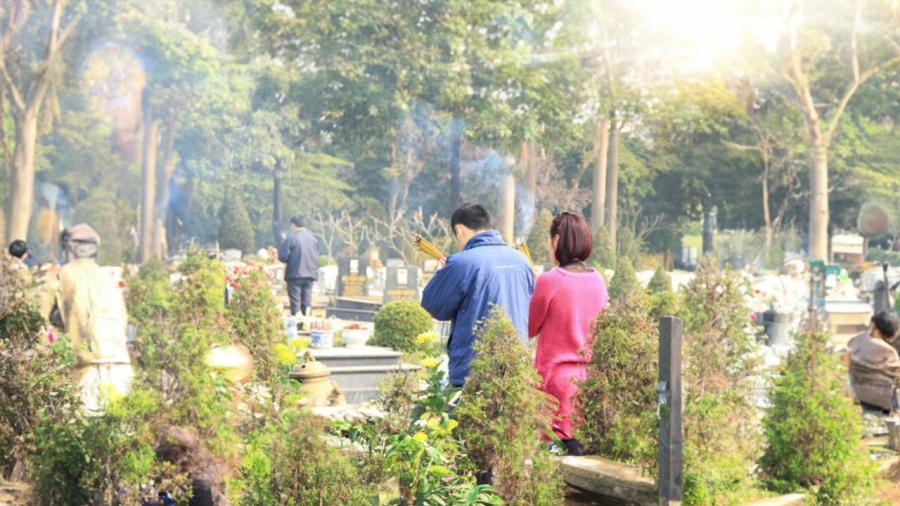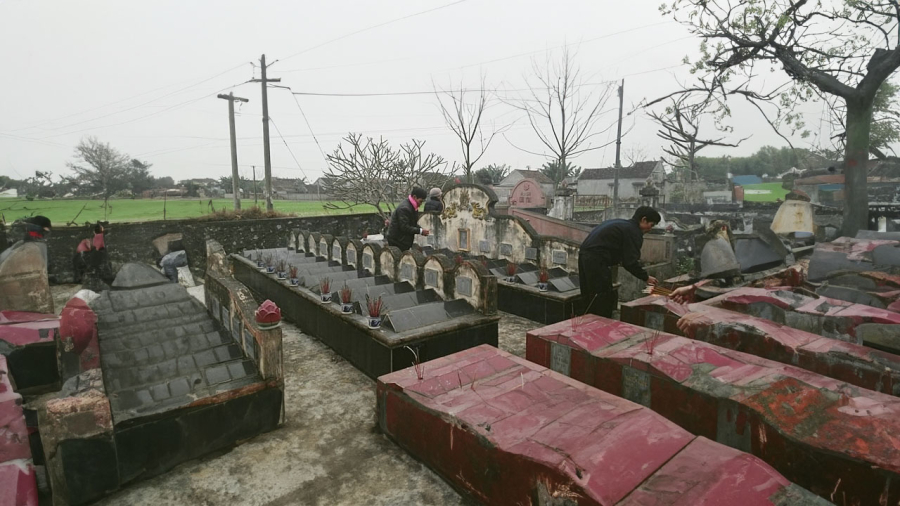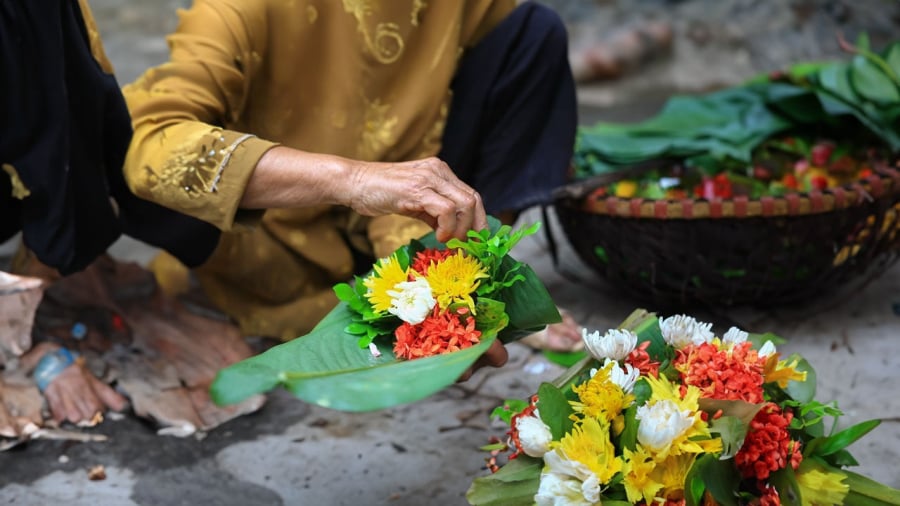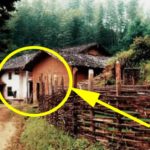Every year, during the end of the year or the Qingming Festival, people visit and clean the graves of their ancestors. This is a tradition that has been passed down through generations to remember the ancestors and teach the younger generations about their roots. However, there are certain things that should be avoided when performing this activity:

Absolutely no stepping or sitting on the graves
Cemeteries have many tombstones, and sometimes they are not built in an organized manner or have proper pathways like they do now. Sometimes there is overgrown grass and wet ground around the graves, so people tend to step on or climb over other people’s graves to pass through.
This is a disrespectful action towards the deceased and a violation of the sacred respect. It can be reprimanded, especially for children and young people who may not understand the significance of this ritual and engage in such actions, which can bring bad luck and disrespect. Therefore, older generations always remind their descendants to be careful and avoid stepping on other people’s graves.
In the past, there were many older graves that had sunk and were at ground level, so the older generations were always careful when visiting cemeteries and paying attention to areas with burning incense, as this could indicate a sunken grave that should be avoided. Whether it brings bad luck or not, one’s mindset in not stepping on the resting place of the deceased is a way to cultivate purity and respect for others.

Avoid bringing objects from the cemetery back home
After burning incense for ancestors, it is customary for descendants to lower their hands respectfully and bring prosperity back home. However, it is strongly advised not to bring anything else, even if they are beautiful or enticing, such as soil, flowers, etc. These items have absorbed negative energy and bad vibes over time in the cemetery, and bringing them home can introduce negative energy and even attach the souls of the deceased to one’s home. This can lead to negative effects such as illness, fatigue, and lack of luck.
Therefore, after paying respects at the cemetery, only the incense used for worship should be brought back. When returning home, it is advisable to clean one’s hands, feet, and shoes and even perform a cleansing ritual to drive away any negative energy and cold energy on the body and prevent any wandering or negative spirits from following back home.
When bringing young children along, special attention should be given, as they may be attracted to flowers or fruits on other people’s graves and may bring them back. This is not a positive practice during the cemetery visit.

Avoid laughing, joking, or using inappropriate language towards the deceased
When visiting the cemetery, it is important to avoid making disrespectful comments, mocking, or speaking inappropriately towards the deceased’s resting place, even if one sees peculiar things on their own or other family’s graves. This disrespectful behavior diminishes the solemn atmosphere of showing respect to the deceased and can incur retribution. Younger ones are prone to absentmindedly engaging in such actions, so it is the responsibility of the adults in the family to remind them to be cautious.
Avoid going too early or too late
When visiting the cemetery, it is advisable to avoid going alone or going too early or too late. The appropriate time for visiting is around 10 to 15 o’clock when the weather is pleasant. Going too early or too late, or going alone, can lead to fear and discomfort. Furthermore, during the early morning or late evening hours, cemeteries can be cold, desolate, and eerie, which may invite cold energy and ailments. It is best to visit the cemetery when the weather is clear and there is sunlight to avoid the ingress of negative energy and cold air, which can deplete one’s vitality and cause illness.
This information is for reference and contemplation purposes only.





































